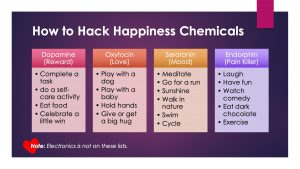 Nobody comes into my office saying, “We don’t laugh together anymore.”
Nobody comes into my office saying, “We don’t laugh together anymore.”
But it’s not news that we’re living in heavy times. We’re surrounded by anger, fear, anxiety, and conflict. Many of us have cut back on the daily “news,” but still—it’s hard not to get splashed.
And whatever we feed on becomes part of us.
It shows up in our tone, our patience, our reactions—and ultimately, our relationships.
Here’s what does come into my office:
- small fights becoming big, even when they’re about “nothing”
- a loss of felt safety
- breakdowns in trust
Those are not separate problems.
They’re the same problem.
Sometimes the Way Back Is Not Through “Deep Work”
Here’s something that surprises people:
When a relationship is strained, you don’t always have to rebuild it through hard work and processing old hurts.
Sometimes you can rebuild it through:
- play
- shared experiences
- laughter
In other words—you rebuild connection by remembering how to enjoy each other again.
That doesn’t mean avoiding problems.
It means creating enough safety and warmth so the problems can actually be addressed.
No one opens up when everything feels heavy.
If you want more on rebuilding connection through play, you can find it here: Let’s Play!
Laughter Is Not Frivolous — It’s Functional
Research backs this up:
- laughter lowers stress
- reduces anxiety
- improves physical health
- increases bonding
But in relationships, it does something even more important:
It lowers defensiveness.
It creates moments where:
- you’re not opponents
- you’re not solving
- you’re just… together
It’s obvious when you think about it.
It’s just that most of us don’t think about it.
If You Want More Laughter, You Have to Create It
Laughter doesn’t just show up in adult life.
You have to make room for it.
Here are a few ways to start:
Do Something Slightly Ridiculous
Adults optimize for efficiency. Kids optimize for fun.
Break the pattern:
- go to a weird event
- try something new
- say yes to something you normally wouldn’t
Novelty creates laughter.
Borrow From a 9-Year-Old
Seriously.
Ask:
“What would a 9-year-old do here?”
Then do some version of that.
- Make the pancake smiley face
- Add the extra bubbles
- Be more playful than necessary
It doesn’t have to be big.
It just has to be different.
Start a “Laugh File”
Save things that make you laugh:
- memes
- videos
- random observations
Then share them.
Better yet, make it a small daily ritual:
“What made you laugh today?”
You’ll be surprised how quickly that shifts the tone.
Notice What’s Funny in Real Life
Your phone gives you a curated feed of other people’s lives.
Look up.
Pay attention to:
- odd signs
- strange phrasing
- human quirks
The world is full of weird little moments that can lift your mood and create connection.
But first—you have to see them.
Build Inside Jokes
Do you and your partner have shared jokes, phrases, or observations?
If not, it’s worth creating them.
Gottman’s research shows that relationships with a strong bank of positive shared memories are more resilient over time. When those memories are mostly negative, the opposite is true.
Even difficult experiences can generate moments of humor—small phrases or observations that become part of your language.
That language becomes glue.
Curate your shared memories.
Build something that belongs just to the two of you.
What You Practice, You Spread
Emotions are contagious.
If you’re steeped in:
- anger
- anxiety
- negativity
That will spread.
But so will:
- laughter
- warmth
- lightness
You don’t control the world.
But you do have influence over what you bring into your relationship.
When the outside world spills into your relationship, fun, laughter, and play tend to leave.
And when they leave, connection is usually not far behind.
Bring On the Laughter
You don’t need to be funnier.
You don’t need to be a comedian.
You just need to be willing to create moments that are not heavy.
Because sometimes, the most powerful thing you can do for your relationship is this:
Stop trying to fix everything… and go have a good time together.
If things feel stuck, tense, or distant, this isn’t a distraction from the work.
It may be the easiest doorway back into connection.
P.S. — You Can’t Do Both at the Same Time
One more thing.
It’s all well and good to say, “Have more fun, laugh more, lighten up.”
But the world has a way of pushing in—hard.
Many of us try to do both at once:
Stay engaged with the headlines… and be fully present with our partner.
Hold outrage… and hold connection.
That sounds reasonable. It isn’t.
Those are different emotional states, and they pull in opposite directions.
One asks you to be:
alert
defended
ready to respond
The other asks you to be:
open
relaxed
emotionally available
You cannot be both at the same time.
If you try, you’ll end up doing neither well.
So make your commitments.
Care about the world. Show up. Stay informed.
And also—build a strong, connected relationship.
Both matter.
But don’t try to do them simultaneously.
When you’re with your partner, treat that time as protected space—maybe even sacred.
Put down the outrage. Step out of the noise. Let yourself soften.
And when you step back into the world, do so with clarity and intention.
Connection and vigilance require different parts of you.
Give each of them its own time.






